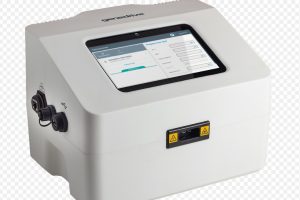City round-up: Rathbones; James Halstead; genedrive

Private wealth manager, Rathbones, hailed a strong first half performance today (July 31) with substantial increases in profits and the interim dividend.
The group, with a key base in the Port of Liverpool Building, achieved a 3.4% increase in funds under management and administration (FUMA) at £108.9bn, and a significant improvement in second quarter cash flows.
Profit before tax for the six months to June 30, 2024, soared by 151.2% to £65.3m and the interim dividend has been raised by 3.4% to 30p per share.
During the reporting period the group also accelerated delivery of IW&I integration synergies, marked the successful first stage implementation of the InvestCloud Client Lifecycle Management (CLM) technology platform, and confirmed that the migration of Saunderson House assets is substantially complete.
Chief executive, Paul Stockton, said: “Rathbones has continued to focus on consolidating its position as the leading UK discretionary wealth manager, with total FUMA growing to £108.9bn at June 30, 2024 (Q1 2024: £107.6bn, FY 2023: £105.3 bn).
“In the first six months of 2024, Rathbones has surpassed both the strategic and financial objectives we set out upon the announcement of the Investec Wealth & Investment (IW&I) combination. We have achieved synergy realisation ahead of target, with run-rate synergies of £20m delivered to the end of June 2024, well ahead of our year one post-combination objective of £15m. These synergies have delivered a benefit to underlying operating profit for the six month period of £8m and we remain confident in the guidance set out at the time of the combination.
“Our office consolidation programme is progressing at pace with six office integrations completed so far, including our London head office move to Gresham Street earlier this month. The remaining two co-located offices will complete during the remainder of 2024. Work to develop our combined service proposition is also advancing well, with several propositions now aligned across the group.”
He added: “Our underlying operating margin was 25.1% for the six months to 30 June 2024 (30 June 2023: 21.3%), in line with our target and showing significant progress towards our target of a 30%+ margin.
“We end the period in a strong position, with confidence in the prospects for our enlarged business and a clear focus on maintaining the momentum of delivery during the second half of the year.”
Investment bank, Panmure Liberum, said Rathbone’s shares were worth holding today.
Analysts Rae Maile, Ross Luckman, James Allen and Jon Byrne said: “Interim results were in line with our estimates and consensus, although the company has delivered synergies ahead of its expectations in the period.
“The better news is that the net flow environment perked up in Q2, with redemptions still elevated but less so – the company almost made it to a net inflow.
“The question remains whether ‘larger’ will mean ‘better at generating growth’ and on that the jury remains out.
“The rating is not challenging relative to history, but then the corporate structure is now much different, too. There are more interesting plays in UK Wealth.”
::

James Halstead flooring
James Halstead, the Manchester-based flooring specialist, is confident of delivering record annual pre-tax profits it confirmed in a trading update for the year to June 30, 2024, today, despite sluggish UK and European markets.
It said it is fully confident of exceeding the prior year comparatives for profit, cash levels and dividend, with improved profitability seen in the first half continuing into the second.
The company sells, for the most part, commercial flooring across the world and has seen continued confidence in the segment of resilient sheet flooring that is sold into the healthcare, education and other institutional sectors.
Regionally sales into the Middle East and the Americas have been particularly buoyant. Some of the company’s products are focused on domestic sectors and performance of these products have been weaker in several territories – the UK and Europe being the most significant.
However, it said, notwithstanding this drag on performance, the group’s productive output, gains on product mix and cost control of overheads have bolstered margins.
There have been gains on lower raw material pricing although energy costs, principally electricity, remain high. Despite the fall in raw materials costs during the year these input costs, in general, are around 50% ahead of June 2020 levels.
Operationally, the widely reported disruption to shipping in the Red Sea has lengthened delivery times and increased costs across the sector, which is particularly difficult for the group’s APAC markets. As a result stock in transit has increased and in response Halstead is holding stocks in its overseas marketplaces at higher than normal levels.
In summary, profit before tax will be at record levels and in line with (upwardly revised) market expectations, the group said.
The company expects to announce its annual results on October 1, 2024.
The company also announces that its Nominated Adviser and Broker has changed its name to Panmure Liberum Limited following completion of its own corporate merger.
Adrian Kearsey, analyst at investment bank Panmure Liberum, recommends Halstead shares as a Buy after today’s update.
He said: “The quality of a business is demonstrated by its ability to navigate turbulent markets. In this regard, James Halstead continues to score well, validating our positive stance on the stock.
“Moreover, the high, and sustainable, RoIC and the scope to further expand international sales provide additional layers to the James Halstead story. Therefore, we reiterate our BUY recommendation and 320p target price.”
::

Genedrive system
Manchester molecular testing business, genedrive, has confirmed that the UK’s National Institute for Health and Care Excellence (NICE) has recommended that CYP2C19 genotyping should be used to guide clopidogrel use after a stroke and that the Genedrive CYP2C19-ID test should be used as the test of choice for point-of-care strategies.
With UKCA certification for the product already achieved, completion of the DEVOTE clinical phase, and today’s final guidance from NICE recommending the CYP2C19 ID kit for use in point-of-care settings, the company will now actively pursue commercialisation in the UK and Middle Eastern countries where device registration is enabled by UKCA certification, and is fully prepared to supply and meet the anticipated demand.
Receipt of CE-IVD certification, in addition to UKCA certification, would enable the company to penetrate markets which it estimates are worth in excess of £100m per annum.
The CYP2C19-ID test uses a single, non-invasive cheek swab sample, and rapidly identifies six important genetic variants of the CYP2C19 gene, five of which are instrumental in the loss of metabolism function. The system automatically interprets the information for the clinician, allowing prompt administration of an optimised treatment plan.
The company has an ongoing valued long standing partnership with clinical genetics collaborators in Manchester under the DEVOTE programme, for which a key clinical milestone has been met for requirements for CE-IVD submission as announced in May 2024.
James Cheek, CEO of genedrive, said: “This represents a key milestone in our commercialisation plans for the product, and further solidifies our business strategy of leading provision of cost effective solutions for pharmacogenetics in time critical emergency healthcare situations. We are proud to be at the forefront of the emergence of near-patient genetic testing in emergency healthcare to facilitate optimal personalised therapeutic choices and ultimately improve patient outcomes.”
Prof Bill Newman, Professor of Translational Genomic Medicine at the University of Manchester and Lead of the NHSE Network of Excellence in Pharmacogenetics and Medicines Optimisation at Manchester University NHS Foundation Trust, said: “To ensure that patients receive the correct treatment to reduce the risk of them having a further stroke after an initial episode, we need to use a rapid genetic test.
“The development of this new point-of-care diagnostic has the potential to significantly improve care for tens of thousands of patients after a stroke. As part of the DEVOTE project we have been delighted to have worked with genedrive to generate the evidence for this test to become available to patients.”








